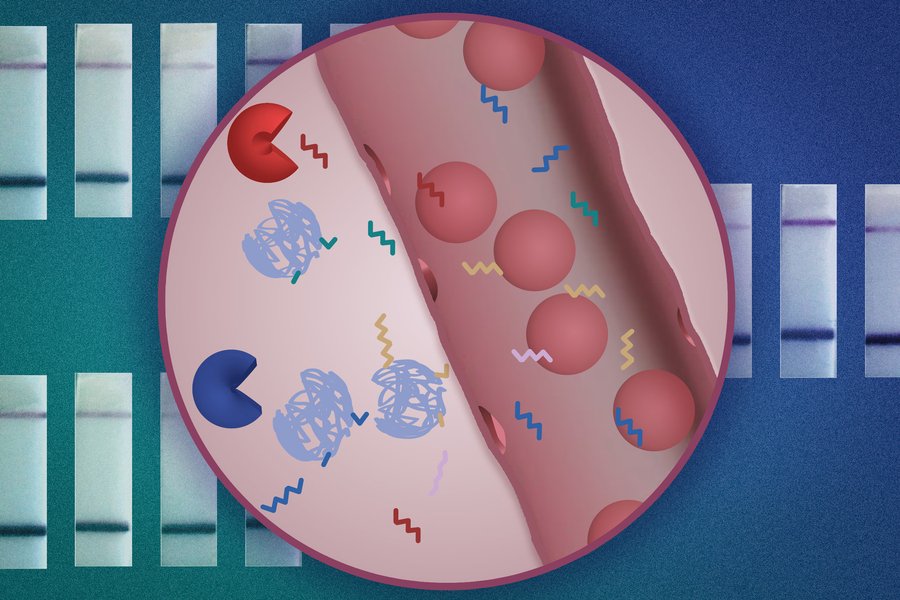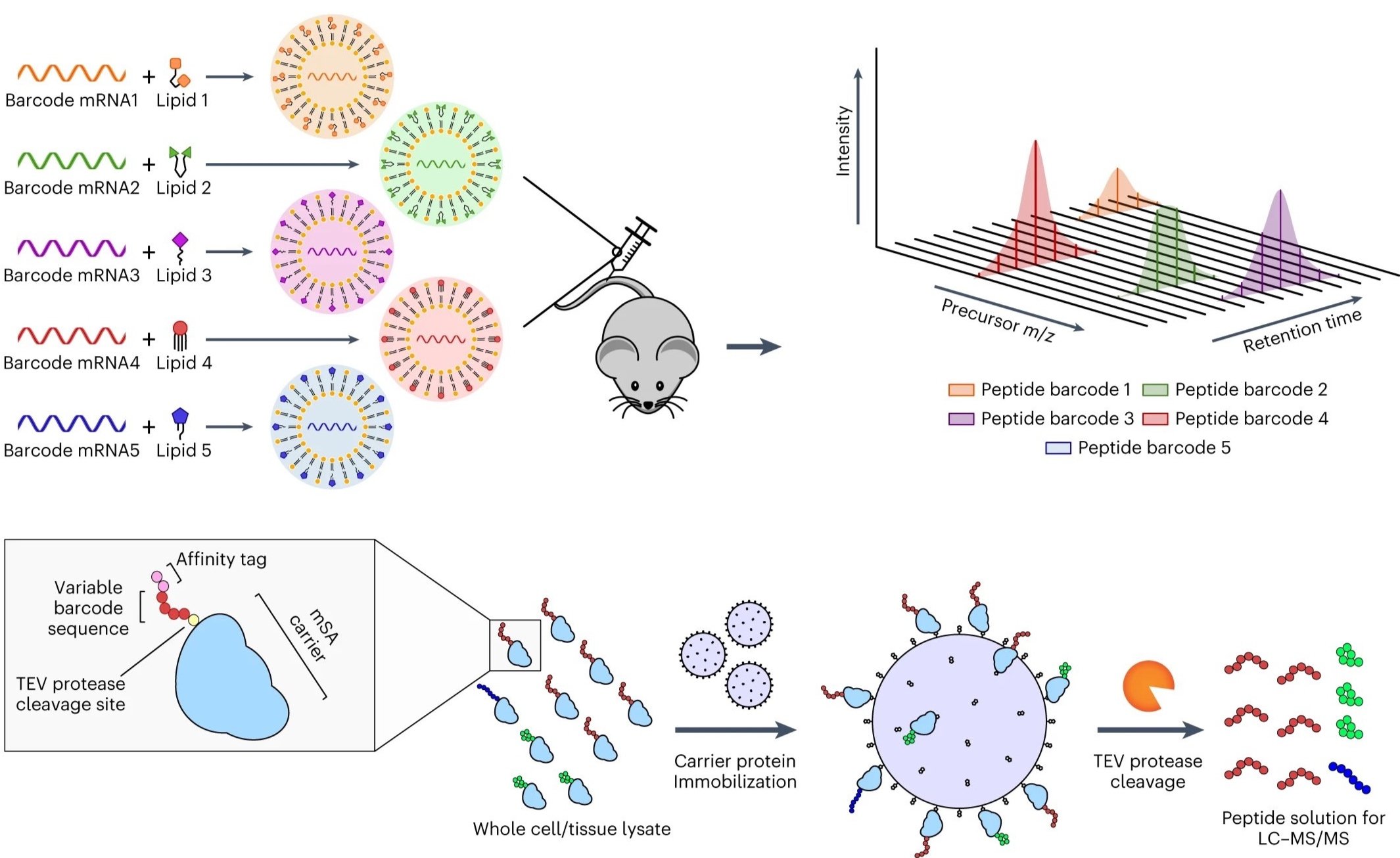May Bulletin
Issue 80
Community Notices
May Research Seminar.
We are excited to be holding two research updates at the next seminar on May 15th, 4-5pm (Luria Auditorium): the first talk will be from Dr. Yanpu He of the Belcher lab on “STING protein-based in situ vaccine.” Allen Jiang of the Langer lab will then present his research on "Combinatorial engineering of nebulized mRNA delivery formulations for the lungs."
After the seminar, please join us for a social with food and drinks (starting at 5:00pm). For those who prefer to join remotely, the Zoom link will be provided upon request (please email Tarek Fadel at tfadel@mit.edu).
Special seminar: Dr. Minh Le, National University of Singapore
Minh T.N. LE, Ph.D.
The Koch Institute’s Marble Center for Cancer Nanomedicine and the MIT Center for Precision Cancer Medicine are thrilled to host a special seminar with Dr. Minh Le (National University of Singapore) on Tuesday May 23, 3-4pm in KI’s Luria auditorium. The title of her talk is “Delivery of nucleic acid therapeutics using extracellular vesicles from red blood cells.”
Multimedia
In the News
A simple paper test could offer early cancer diagnosis
MIT engineers have designed a new nanoparticle sensor that can enable cancer diagnosis with a simple urine test. The nanoparticles (blue) carry DNA barcodes (zigzag lines) that can be cleaved by cancer-associated proteases in the body (pac-man shapes). Once cleaved, the DNA barcodes can be detected in a urine sample.
Image credit: Courtesy of the researchers. Edited by MIT News
(MIT News) MIT engineers have designed a new nanoparticle sensor that could enable early diagnosis of cancer with a simple urine test. The sensors, which can detect many different cancerous proteins, could also be used to distinguish the type of a tumor or how it is responding to treatment.
The nanoparticles are designed so that when they encounter a tumor, they shed short sequences of DNA that are excreted in the urine. Analyzing these DNA “barcodes” can reveal distinguishing features of a particular patient’s tumor. The researchers designed their test so that it can be performed using a strip of paper, similar to an at-home Covid test, which they hope could make it affordable and accessible to as many patients as possible.
“We are trying to innovate in a context of making technology available to low- and middle-resource settings. Putting this diagnostic on paper is part of our goal of democratizing diagnostics and creating inexpensive technologies that can give you a fast answer at the point of care,” says Sangeeta Bhatia, the John and Dorothy Wilson Professor of Health Sciences and Technology and of Electrical Engineering and Computer Science at MIT and a member of MIT’s Koch Institute for Integrative Cancer Research and Institute for Medical Engineering and Science. Read more…
PAPER SPOTLIGHT: Peptide-encoding mRNA barcodes for the high-throughput in vivo screening of libraries of lipid nanoparticles for mRNA delivery
(Nature Biomedical Engineering) The Anderson research team has developed a new approach that can simultaneously identify specific nanoparticle formulations that efficiently deliver functional mRNA to target cells and quantify the amount of protein production effected by each particle. This high-throughput method consists of functional peptide barcodes that are encoded by mRNAs and formulated into separate lipid nanoparticles (LNPs). Barcoded LNPs can then be pooled and administered in a single dose to the same animal and, once translation of successfully delivered mRNA has occurred in a target tissue or cell type, expression of each peptide barcode sequence can be quantified using liquid chromatography followed by tandem mass spectrometry (LC–MS/MS). Read more…
Top: Overview of the peptide barcoding assay, where nanoparticles are each formulated with a unique peptide barcode mRNA, the products of which can then be detected and quantified using LC–MS/MS. Bottom: Structure of the peptide barcode protein, which consists of a carrier protein (mSA, monomeric streptavidin) fused to a variable barcode sequence and an affinity tag through a TEV protease recognition site. The carrier protein and associated peptide barcode can be purified from whole lysate by immobilization onto biotinylated beads. (Source: Nature Biomedical Engineering)
Nanoparticles provoke immune response against tumors but avoid side effects
Cancer drugs that stimulate the body’s immune system to attack tumors are a promising way to treat many types of cancer. However, some of these drugs produce too much systemic inflammation when delivered intravenously, making them harmful to use in patients. MIT researchers have now come up with a possible way to get around that obstacle. In a new study, they showed that when immunostimulatory prodrugs — inactive drugs that require activation in the body — are tuned for optimal activation timing, the drugs provoke the immune system to attack tumors without the side effects that occur when the active form of the drug is given.
The researchers designed prodrugs with bottlebrush-like structures based on a class of compounds called imidazoquinolines (IMDs). Mice treated with these bottlebrush prodrugs designed with optimized activation kinetics showed a significant reduction in tumor growth, with no side effects. The researchers hope that this approach could be used to boost immune system responses in cancer patients, especially when combined with other immunotherapy drugs or cancer vaccines. “Our bottlebrush prodrug library enabled us to show an immunological effect of controlling immunotherapy kinetics, allowing us to boost immune responses while minimizing the side effects,” says Sachin Bhagchandani, an MIT graduate student who is the lead author of the study. “This kind of approach opens up avenues for scientists who want to decouple toxicity from some promising immunotherapy agents.”
Jeremiah Johnson, an MIT professor of chemistry, and Darrell Irvine, the Underwood-Prescott Professor with appointments in MIT’s departments of Biological Engineering and of Materials Science and Engineering, are the senior authors of the paper, which appears today in Science Advances. Irvine is also an associate director of MIT’s Koch Institute for Integrative Cancer Research and a member of the Ragon Institute of MGH, MIT, and Harvard. Read more…
Microneedle Patch Printer Enables On-Demand Vaccine Manufacturing
(Jonathan D Grinstein | Geneng News) Researchers from the lab of Robert Langer at the Koch Institute for Integrative Cancer Research at the Massachusetts Institute of Technology (MIT), say they have developed a printer for microneedle patches smaller than postage stamps that penetrate the skin to deliver vaccines, including the COVID-19 mRNA vaccine.
The research article, “A microneedle vaccine printer for thermostable COVID-19 mRNA vaccines,” was published in Nature Biotechnology. “We hope the systems and principles developed in our Nature Biotechnology paper to create a mobile vaccine printer will someday enable people in remote areas to receive vaccines on demand,” Langer told GEN. “We also hope this new way of creating microneedle patches as well as the new ways of stabilizing vaccines so that they will no longer have to be refrigerated will be further increase the utility of mRNA vaccines and other vaccines for people worldwide.”
Senior author Ana Jaklenec, a research scientist and co-principal investigator in Langer’s lab, told GEN that this project predates the COVID-19 pandemic, when the research team was approached by the Biomedical Advanced Research and Development Authority (BARDA) to develop technologies that enable on-demand access to vaccines in case of a pandemic-type setting because they didn’t want to stockpile vaccines. Read more…
Jobs
Venture Associate, Alloy Venture Studio (82VS).
As a Venture Associate, you will work and collaborate across scientific, operational, and business areas to build new biotech companies from idea to Series A. You will work daily with Founders to help them build their ideas into companies, and also have space to explore your own ideas. This role requires a PhD and a tremendous passion for advancing science into medicines for patients. This role will report to a Venture Partner with autonomy owning various stakeholders, projects, and initiatives in a dynamic start-up environment while keeping up the pace of 82VS. Read more…
Advisor/Sr. Advisor - Nanomedicine Analytical Development, Eli Lilly & Company.
Eli Lilly is looking for a highly motivated and experienced candidate for the role to lead the Analytical Development group. The candidate will have experience in developing novel analytical assays for drug substances and drug products with a focus on oligos, nucleic acids, and nano delivery systems. He/she will also exhibit a strong sense of curiosity to enable building up of a robust analytical pipeline with novel bio-analytical assays. Read more…
Funding opportunities
| Funding Source | Grant ID | Deadline | Lung Cancer Research Foundation: Minority Career Development Award | N/A | May 31, 2023 | WES Leukemia Research Foundation: 2023 Research Grants | N/A | June 1, 2023 |
|---|









